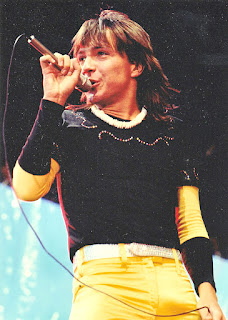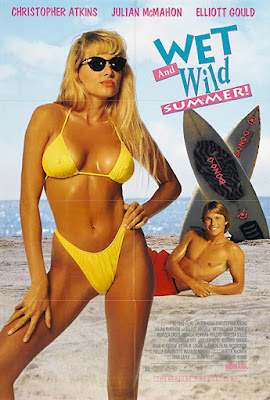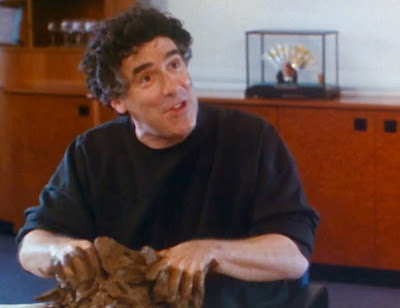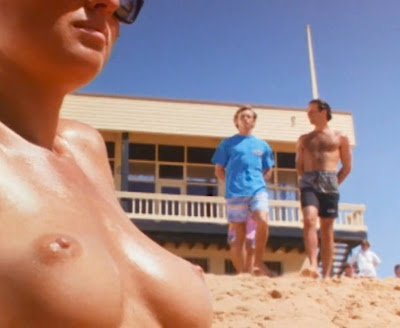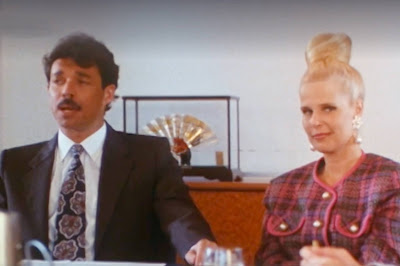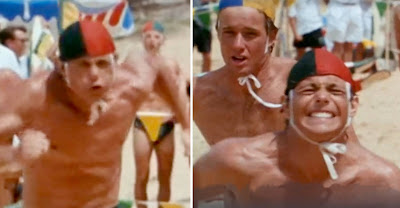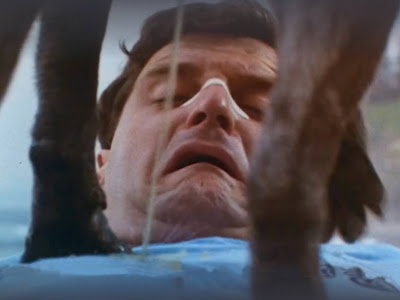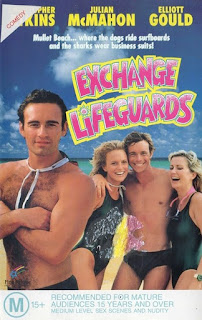 | ||
| The cheesy cover for Pinnacle’s 1978 edition of The Love Merchants. |
But before celebs were showing more than they intended or sharing more than we wanted to know on Twitter, we had authors like Jacqueline Susann, Jackie Collins and Harold Robbins revealing, in XXX-plicit detail, the sordid goings on Hollywood tried so hard to keep under wraps. Their books were fiction, but it was understood they were roman à clefs. Half the fun in reading the books was figuring out a character’s real-life celeb counterpart.
Stephen Lewis was much lower on the literary ladder than his trash fiction contemporaries, a writer who appears to have been more concerned with making a quick buck than earning a solid reputation. I first learned of Lewis on the Glorious Trash blog, which reviewed Lewis’s Massage Parlor and its creatively titled sequel Massage Parlor, Part II, both books published under the pseudonym Jennifer Sills. But Lewis did not restrict himself to providing the pornographic “exposés” of the rub-and-tug biz. He also cranked out novels inspired by other bestsellers, the literary equivalent of mockbusters.
Such a novel is The Love Merchants. Even its title is derivative of other bestsellers, a mash-up of Susann’s The Love Machine and Robbins’ The Dream Merchants. Its storyline, however, has more in common with another knock-off in the Hollywood sleaze genre, Burt Hirschfeld’s 1970 novel The Love Thing, written under his Hugh Barron pseudonym. Like Love Thing, The Love Merchants is largely told from the point of view of a Hollywood publicist, and as in Love Thing, publicists are portrayed as wielding as much power as any studio executive.
Hollywood publicist Laura Chesnay still remembers when she was starting out in 1942, when she was still known as Lola Cheifitz and working for Milton Sakowitz in New York, trying to “take second rate actors from one of the second rate shows Milt handled and plant an item that had them ‘spotted’ at a second-rate restaurant, also one of Milt’s accounts.” Ever ambitious, she changed her name to “rid herself of her obviously Jewish heritage,” and with the new name came a greater reputation. After being hired away by the much more prestigious Baker and Hammond firm she not only scored a publicity coup for screen goddess and walking scandal machine Faye Reynolds but befriended the star as well, assuring Laura’s ascension to the top of her field.
Now running her own P.R. firm in early 1970s Los Angeles, Laura does everything from advising her clients on which projects will best benefit their careers to smoothing over marital spats lest the couple jeopardize their successful husband-and-wife act (and Laura’s income). |
| The 1974 cover was better yet still missed the mark. |
Jack and Betty Martin also require a lot of Laura’s attention, the couples’ image as, per the back-cover copy, “Hollywood’s Mr. & Mrs. Wholesome” constantly being threatened by Jack’s fucking every woman who steps within three feet of his dick and their teenage son Denny’s drug busts. A more closely guarded secret than Jack’s infidelities is his abuse of his wife Betty, which she forgives because the make-up sex is oh, so good.
It would seem Laura would be plenty busy with these train wrecks for clients, but she’s always on the prowl for new business. When the smoothly confident Ray Cummings, a media mogul specializing in the teen market, meets with her and proposes working together to make Denny Martin the Next Big Thing, she jumps at the opportunity. The partnership proves profitable, yet Laura finds herself becoming increasingly suspicious of Cummings, though she’s unable to pinpoint exactly why.
Maybe she’d be able to figure it out if she wasn’t suddenly busy with Faye Reynolds, who has returned from several years of exile in Europe following her firing from Worldwide Studios. Faye has been surgically restored to her youthful prime and is now ready to get back into the Hollywood scene. If Laura helps her buy the rights to the movie she made in Europe, Faye just knows she’ll once again be the reigning queen of the big screen.
Let Me Ruin ‘The Partridge Family’ for You
Per his bio in the back page of the book, Lewis used to be a gossip columnist and it shows in his characterizations of the celebrities in The Love Merchants. Though Faye Reynolds most closely resembles Elizabeth Taylor, I thought she was more of an amalgamation of several different movie stars (I detected shades of Bette Davis and Joan Crawford in her as well). Les Thomas, on the other hand, is so obviously based on Rock Hudson that he might as well have been named Hock Rudson. Lewis not only includes a flashback to when Les was coerced into marrying his agent’s secretary to quell gay rumors, just like Rock Hudson, he also incorporates a plot point in which Ray Cummings has doctored photos sent to media outlets showing Les marrying county comedian Grant Holmes, very similar to a joke gone awry involving Hudson and Jim Nabors.
The real-life family of entertainers that Jack, Betty and Denny Martin immediately brought to my mind were Jack Cassidy, Shirley Jones and David Cassidy. Once that association got stuck in my head it put a whole new spin on some of the book’s more lurid passages, such as when Jack enters the bathroom while Betty is taking a bath:
[Jack] dropped his pants slowly, enjoying her reaction.
“I have to take a piss,” he said softly. “Want it?”
Before she could answer, the hot yellow stream was flowing out of him into the tub. She felt it splash over her breasts and shoulders, then onto her neck and face. It happened so quickly that she had no time to react.
“You bastard!” she shouted. “You son of a bitch!”
Jack laughed as she hurriedly opened the drain and stood up, turning on the shower. She scrubbed at herself furiously, then Jack reached for her. Betty thought she was going to slip in the wet tub as she tried to pull away from him, but Jack’s arms went around her, lifting her out of the tub in one movement.
Before Betty could stop him, he had lowered her onto the bathroom rug.
“Now,” he said heatedly, “now you’re going to get what you want.”
Or when Betty walks in on Denny taking narcissism to a whole new level:
She gasped at his nakedness. He was sprawled on the bed, hard and swollen, leafing through a magazine. For a time neither of them moved. Betty was amazed—at seventeen, Denny was as large as his father. She blushed, realizing it had been years since she’d seen her oldest son totally nude.
David Cassidy in his 1974 prime. “I—I’m sorry,” she said as Denny slowly brought the magazine down to cover himself. She noticed that it was a copy of Teentime, an issue that had a big story on Denny himself. There was a glimmer of amusement in the boy’s eyes as he watched her growing discomfort.
“That’s okay,” he said.
And, finally, when Betty hires a hustler:
[When] he returned, the drinks in hand, she was waiting for him. He paused at the edge of the bed, and she swung herself around, her hands reaching for him. His testicles were heavy and swollen. Betty lifted them and released them, then her fingers moved to his penis, sliding it up and down until he was erect.
She moved faster, taking him in her fist, and what she found most enjoyable was not her own action but the passion she provoked in the boy. His eyes were closed and his head back. For a moment Betty thought of her son—was this what Denny and his girlfriend did? Had he ever—
The boy’s legs began to quiver, and a splash of scotch fell on his arm.
“Careful…” she said softly as he climaxed on her breasts. “You don’t want to spill the drinks.”
Then, taking one of the glasses, she used her free hand to guide his lips to hers, then downward. She leaned back as his eyes met hers, then he bent his head, understanding.
Betty smiled, watching him. It would be a long time before anyone came home—and next week she’d see they were all out again.
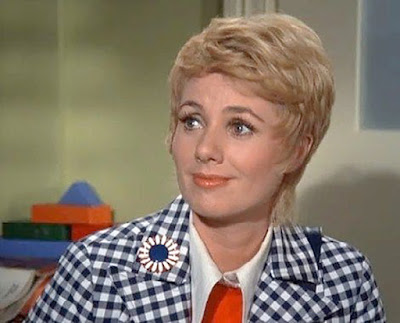 |
| Rock on, Mrs. Partridge, you kinky bitch. |
I’ll never view The Partridge Family the same way again. And if I’m reading the above scene correctly, I believe it’s implying
Easy to Digest, Not as Filling
Lewis’ easy-to-digest style was just what I needed after Gaywyck’s fussy prose. He didn’t elevate the genre above itself like Herbert Kastle did, but he was a better writer than some of the established authors he was ripping off (Jackie Collins and Harold Robbins, specifically). The writer he reminded me of the most was another 1970s sleazemeister, William Hegner, though Lewis is neither as outrageous nor as quotable.
As easy as the The Love Merchants goes down, its story isn’t that filling. I suspect Lewis was trying for a specific word count, because by page 300 he seemed more interested in wrapping the story up than fully telling it. Several dramatic moments happen largely off-page (Faye confronting and assaulting Laura’s ex-business partners) or in flashback (Denny discovering his mom with a call boy), and we don’t get proper endings for several characters’ arcs as Lewis rushes to bring the book in at 341 pages. Usually readers can expect a lot of padding when publishers mandate writers keep to specific word counts, but Lewis could have really used an extra hundred pages or so to flesh out his novel. He also deserved more careful editing. The Love Merchants is riddled with typos and misspellings. Evelyn Grippo, who’s credited with editing the book (yes, this book has production credits), should be embarrassed.
The Love Merchants may not be fully satisfying trash, but it was enjoyable enough to whet my appetite for more of Lewis’ work. I recently bought Buried Blossoms, Lewis’ posthumously published (he died in 1981, in his 30s) Flowers in the Attic knock-off, which I fully intend to review. Eventually.

